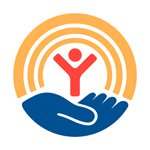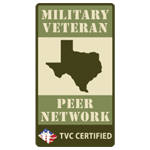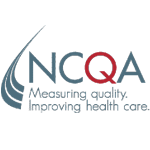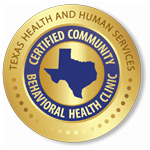
March 23, 2020
Situational Anxiety vs. Generalized Anxiety Disorder
Anxiety is an important part of our internal anticipation and warning systems that prepares us to respond to dangers – whether they be real or perceived. We often experience anxiety in the natural course of life such as about a significant challenge at work or about our teenager who is struggling in school as examples. Anxiety can even be motivating, like before a basketball game to get adrenaline pumping or even before happy events like having a baby or a wedding.
An anxiety disorder, in contrast, is a mental health problem involving the brain and adrenal glands that can substantially impair our daily functioning. As much as 20% of the population suffers from these common conditions. In these cases, anxiety can appear for no apparent reason, be stronger than expected, or feel like it is impossible to manage. People may avoid everyday situations like going to the grocery store (during ordinary times, not during a pandemic) because the anxiety is so intense.
During high stress situations or in a crisis, when we are facing physical risks and uncertainty – like with the coronavirus pandemic – anxiety can increase for anyone and especially for those with an anxiety disorder. This becomes even more true when the crisis continues for days, weeks or months. Then, anxiety can be overwhelming.
What can you do?
Pay attention to physical signs of anxiety: shallow breathing, increased heart rate, sweating, trembling, racing thoughts, or trouble concentrating.
Take these Top 10 steps that anyone can use for support and relief:
- Count your breaths. This helps deepen your breathing which physically helps your body and mind relax. Breathe in for 5 seconds, pause for 3 seconds, and breathe out for 5 seconds. Slowly.
- Meditate. It’s easier than you think. Being in the present moment is critical for reducing anxiety rather than overfocusing on the future. There are a number of apps, like Headspace or TenPercent, that you can try for free to learn how. You can even get guided meditations for free on YouTube. Progressive muscle relaxation is especially useful to help deal with the physical symptoms. It’s important to try meditation for 10 days to get the hang of it. Just 5 minutes a day is a good start.
- Get moving. Good exercise for 30 minutes a day is essential for a healthy lifestyle. But also, you can simply get up in the moment and get moving. Take a walk around the block. Do a set of sit-ups or push-ups or high steps. Stretch. Do yoga or tai chi, both of which have a calming, meditative aspect to the practice. If you have not been active recently, take it slowly with 5-10 minutes of exertion a few times a day. Fairly quickly, you will feel ready for more, and your stress will be reduced.
- Get news from official sources. With respect to a worldwide crisis, listen to the experts from several sources so you do not have inaccurate information that could feed panic. Social media is full of opinions and false statements.
- Conversely, take media breaks. Limit your news and social media intake. Stay informed but don’t overdose on news or Facebook. Instead, utilize the other tips with that time.
- Increase your water intake. Staying hydrated is good for your health and well-being. Taking time out to sip tea or water can also be meditative.
- Reduce your alcohol, sugar and caffeine intake. Eating healthfully goes without saying for all of us. But if you only do one or two things to improve your diet, reducing or cutting alcohol, sugar or caffeine is one small step with big results.
- Practice small acts of courage. If you are overwhelmed and feel stuck, pick one small thing that you can do and celebrate that accomplishment. Get a buddy to help you through it while maintaining social distance or face time.
- Keep a diary. Tracking your anxiety can help you see patterns of when anxiety may be more overwhelming than usual. It can also show you ways in which you might be exacerbating your anxiety or triggers that you can avoid. Writing also helps you get anxious thoughts out of your head and onto paper. Seeing the thoughts can help you challenge self-talk that may be inaccurate or not useful. You can even make a practice to mentally “letting go” of your negative self-talk once it is written down.
- Connect with calm people … and laugh. Surround yourself with people who are also practicing these tips. Watch funny movies. Share jokes. Get an accountability partner and check in daily with the steps each of you is taking to support yourselves.
Metrocare is here for Dallas. If you need to reach out to a professional because of your personal anxieties, we are here for you with a special phone line for extra support.
Here’s the number for the Metrocare Coronavirus Support Line: It’s 214-743-1215.
It is open during our normal business hours. Metrocare’s professionals will assist individuals in accessing our mental health services and provide referrals for other services that may be needed.
Taking care of our physical health – especially in times like these – means supporting our mental well-being and each other.
Stay connected
Sign up for our newsletter











